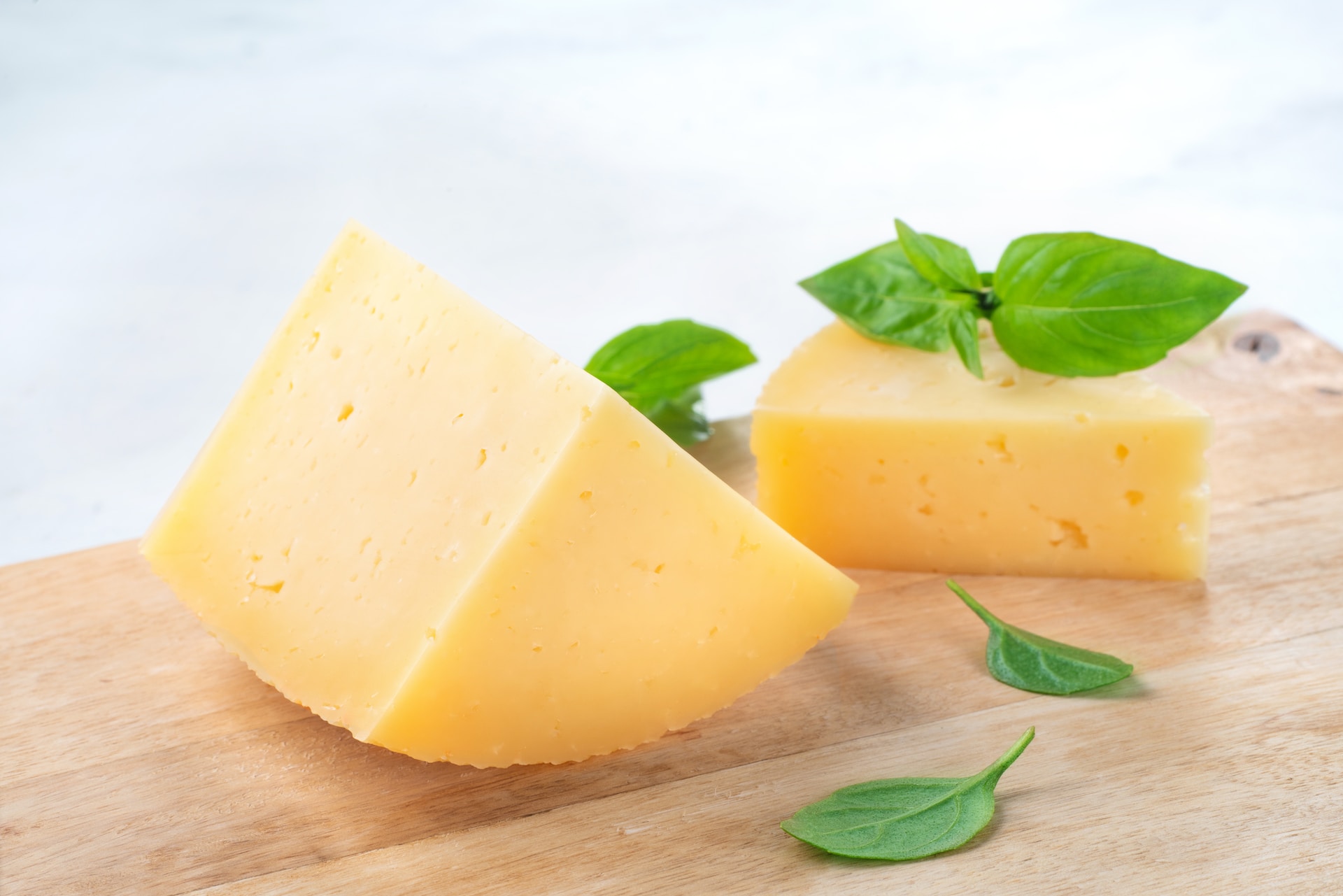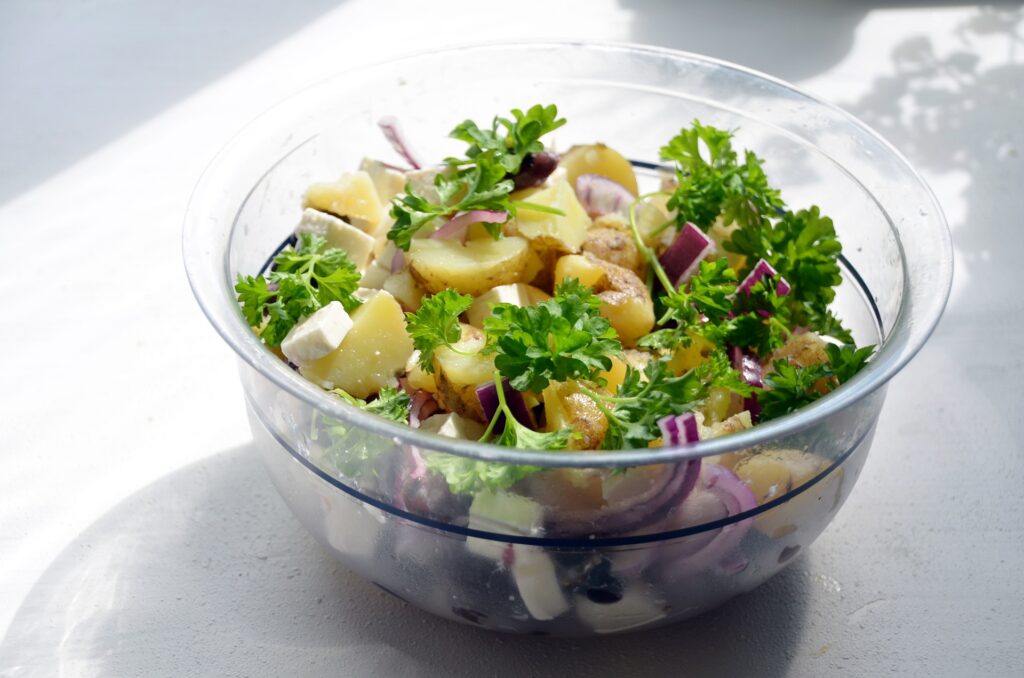Provolone cheese is a popular choice among cheese enthusiasts. And sometimes we want to share our delicious treats with our furry friends. But can dogs eat provolone cheese or is it bad for them?
Dogs should avoid provolone cheese. Although dairy is not a natural part of their diet, small amounts occasionally may not harm them. However, some dogs may be lactose intolerant, leading to digestive issues. There are some dog-friendly cheese options though.
- What is provolone cheese?
- What is the nutritional value of provolone cheese for dogs?
- What are the potential risks and side effects?
- What are some healthier and dog-friendly alternatives to provolone?
- What are the recommended serving sizes for this cheese in a dog’s diet?
What is provolone cheese?
Provolone is an Italian cheese usually made from full-fat cow’s milk. Besides milk, it also contains salt, enzymes, and cultures. Usually, the cheese is aged for a few months before serving, as it’s a way to get its signature taste. Even though it’s from Italy, this cheese is now manufactured in many countries around the world.
How should provolone cheese be offered to dogs?
This cheese can be offered to dogs as an occasional treat or used as a reward during training sessions. However, it should not replace a balanced and nutritious diet. Additionally, consider cutting the cheese into small, bite-sized pieces to prevent choking hazards. Also, watch out for table scraps whenever you eat the cheese as your dog might get its hand on it and eat it all up.
What is the nutritional value of provolone cheese for dogs?
If used moderately and in small amounts, this delicious cheesy snack can be quite beneficial to your dog.
Nutrient-rich
This cheese contains vitamin A and B-complex vitamins, which are very healthy for dogs. Minerals like calcium and phosphorus are also included. They can help with bone and joint health. Besides that, the cheese is also very high in protein and healthy fatty acids.
Moderate in bad ingredients
One benefit of this cheese is the fact that lactose is removed during the manufacturing process. This is great for dogs that are lactose-intolerant. This snack is also low in carbs, which means it’s great for dogs that are on grain-free dog food diets.
Additional uses
Using provolone in dog training is a great option if you want to use positive reinforcement. You can also use it as a way to give pills to your dog. Besides these, cheese is just fun to eat and is known to cause happiness to both people and dogs.
What are the potential risks and side effects?
Even though there are some benefits to it, cheese can cause a few adverse effects you want to avoid on your dog.
Lactose intolerance
Even if it is low in lactose, ingested in higher amounts, provolone will cause problems for dogs that are lactose-intolerant. This is usually accompanied by symptoms like diarrhea, vomiting, and lethargy. Dogs will experience diarrhea at night if they eat this delicious snack in the evening.
Dr. Zubair Malik, for the MSD Manual, explains lactose intolerance as such:
| Lactose, the predominant sugar found in milk and other dairy products, is broken down by the enzyme lactase, which is produced by the cells in the inner lining of the small intestine. Lactase breaks down lactose, a complex sugar, into its two components, glucose and galactose. These simple sugars are then absorbed into the bloodstream through the intestinal wall. If lactase is lacking, lactose cannot be digested and absorbed. The resulting high concentration of lactose draws fluid into the small intestine, causing watery diarrhea. The lactose then passes into the large intestine, where it is fermented by bacteria, producing gases that cause flatulence, bloating, and abdominal cramps. |
Pancreatitis
The high amounts of fats included in this cheese can be very problematic for the pancreas. Eaten in large amounts, the pancreas can become inflamed and cause serious issues. Dogs that suffer from this disease will feel excessive abdominal pain, digestive upset, and become lethargic. It is life-threatening and if you notice symptoms, you should ask your vet for help.
Weight gain
Feeding dogs provolone cheese consistently for a longer time will cause the dog to gain weight. This is due to the high caloric value of the snack which builds up over time. If a dog continues to eat this, it will become obese and suffer from additional problems. Obesity is often associated with cardiovascular disease.
To check if your dog is overweight, you can use a special scoring. “Body Condition Scoring (BCS) is an easy-to-use quantitative tool to determine a pet’s body condition and fat accumulation. The preferred scale ranges from 1 (emaciated or very thin) to 9 (obese) with an ideal body score of 5.”, explains the Association for Pet Obesity Prevention.
Sodium toxicity
Manufacturing cheese includes using high amounts of salt in order to make the taste better. However, this salt can be highly toxic to dogs if they eat too much of it. Dogs can become severely dehydrated soon after eating too much sodium. The long-term effects are represented by high blood pressure.
What are some healthier and dog-friendly alternatives to provolone?
If you still want to give a tasty snack for your dog, but want it to be healthier, there are some provolone cheese alternatives for dogs that you can try.
- Gouda cheese – This is Dutch cheese with a creamy and smooth texture. It contains A and B vitamins, as well as high protein and calcium amounts.
- Cheddar cheese – This tasty cheese is known to have lower lactose amounts, which is perfect for dogs that have an intolerance to it.
- Cottage cheese – This is probably your best choice for an alternative as it has the lowest amount of sodium and fat compared to the others. It’s also very high in proteins.
Other cheeses you can try also include mozzarella, swiss, parmesan, and ricotta cheese. Whichever one you choose, make sure you give it in moderate amounts and as a snack.
What are the recommended serving sizes for this cheese in a dog’s diet?
Your dog can eat provolone cheese in moderate amounts. If you are just starting to give this delicious snack to your dog, do it with caution. First, buy a cheese that hasn’t been seasoned or smoked. Check for any additional ingredients that can harm your dog.
Then, cut the cheese into small pieces before offering it. Remember that it’s a treat, not a regular meal. Give a little bit and then monitor for any side effects. If none appear, you can give more next time. Some dogs don’t know when to stop eating, so you should train yours to listen to you.
Be mindful of your dog’s weight and overall health when giving them cheese. Also, follow veterinary recommendations when introducing new foods to your dog. The serving size of provolone cheese for dogs depends on their size, age, and gastrointestinal health. As a general guideline, a small piece (approximately 1/2 inch square) can be given occasionally to small dogs, while larger dogs can have slightly larger pieces, but always in moderation.
Can dogs eat provolone cheese? – A summary
Provolone is a delicious cheesy treat that a dog can have from time to time. But moderation and caution should be exercised as it can also be very bad for dogs.
This cheese has a high sodium amount which can intoxicate dogs. It is also very fatty and contains some lactose that can cause problems for someone who is lactose intolerant. Its high caloric values will also cause obesity in dogs.
However, this cheese is tasty and does have some benefits. If you choose the right type and know how to moderately offer it, you shouldn’t have too many problems with it. If you want to give cheese to your dog but provolone sounds dangerous, there are also a few good substitutes to try out.
FAQ
What other human foods should dogs avoid?
Foods like chocolate and grapes are known for causing serious problems to dogs. Onions and garlic are also quite known dog toxins. Avocados, macadamia nuts, and alcohol are also high on the list.
Can puppies eat provolone cheese?
Even though adult dogs can eat provolone cheese in moderate amounts, it isn’t recommended for puppies. Puppies’ digestive systems are still developing, and they can be more sensitive to certain foods, including dairy products.
Can dogs have ham?
In small amounts, this delicious snack can be fine for dogs, but it is best to avoid feeding it altogether. It also contains high sodium and fat amounts which can cause serious problems for your dog.
More dog nutrition resources
Here are a few other resources talking about giving certain foods to dogs and the effect they have on their health.
- Dog ate uncooked rice
- Horse meat for dogs
- Can dogs have ritz crackers
- Can dogs eat canned green beans
- Can dogs eat ice cream cones
You can find a lot more information on the types of food you can feed your dog on our site Dogisa!
Can Dogs Eat Potato Salad Safely? Exploring the Risks and Benefits
When it comes to feeding our furry friends, it’s essential to know which human foods…
Can Dogs Eat Sauerkraut: Benefits, Risks, and Serving Sizes
Sauerkraut, a fermented cabbage dish popular in many cuisines, has gained attention among dog owners…
Can Dogs Have Fennel? Exploring the Benefits and Safety
As loving dog owners, it’s natural for us to ponder about the safety of certain…
Can Dogs Eat Mushroom Soup? A Simplified Guide
Dogs can eat a lot of different fruits and vegetables that are part of their…
Can Dogs Eat Pinecones? This Is What Happens When They Do
Walking the dog around the park is an everyday activity that we and our dogs…
Can Dogs Eat Ice Cream Cones? – How To Make Substitutes
Ice cream is one of the best treats to have during summer. Usually, ice cream…







